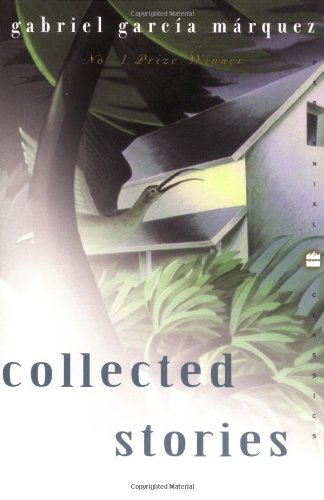All Nonfiction
- Bullying
- Books
- Academic
- Author Interviews
- Celebrity interviews
- College Articles
- College Essays
- Educator of the Year
- Heroes
- Interviews
- Memoir
- Personal Experience
- Sports
- Travel & Culture
All Opinions
- Bullying
- Current Events / Politics
- Discrimination
- Drugs / Alcohol / Smoking
- Entertainment / Celebrities
- Environment
- Love / Relationships
- Movies / Music / TV
- Pop Culture / Trends
- School / College
- Social Issues / Civics
- Spirituality / Religion
- Sports / Hobbies
All Hot Topics
- Bullying
- Community Service
- Environment
- Health
- Letters to the Editor
- Pride & Prejudice
- What Matters
- Back
Summer Guide
- Program Links
- Program Reviews
- Back
College Guide
- College Links
- College Reviews
- College Essays
- College Articles
- Back
A Very Old Man with Enormous Wings(short story) by Gabriel Garcia Marquez
In today's society, we associate the word corruption with selfishness and dishonesty, and we look down upon those that aren't charitable. We don't like to see it this way, we want to believe that because we're not as bad or evil as the people we see on the news, we're good, but if corruption is being shady, selfish and dishonest, aren't we all a little corrupt? In the short story “A Very Old Man with Enormous Wings” by Gabriel Garcia Marquez, the theme of corruption is explored. This following essay will now further highlight the notion of corruption through the setting, the symbolism of crabs and the characterization of society.
Corruption is displayed through the weather in Macondo, the town where the story takes place. In Macondo, it's always dark, gloomy and rainy. This setting represents how the villagers themselves are dark, dreary and corrupt. At the beginning of the story, a description of the setting tells us it used to be sunny all the time, but it “had become a stew of mud and rotten shellfish” (p.1). This demonstrates how the townspeople weren't always evil, but their greed has taken over and destroyed any morals they once had. Another point where their corruption is expressed is when Elisenda's child had just begun school and the “rain had caused the collapse of the chicken coop” (p.4). This quote shows how the society's corruption has yet again destroyed a pure and innocent entity. The rain, symbolizing corruption and evil, has caused the collapse of the chicken coop, symbolizing safety and the womb because of it's boxy shape, making it a uteran symbol. The chicken coop, never to be upgraded or changed, never to be corrupted, has fallen apart and crumbled due to the evil of society.
The infiltration of crabs in Pelayo and Elisenda's home is symbolic of spoiling and illness, and is one of the first signs of their corruption. The crabs are everywhere in their home, and more are constantly coming in. The number of crabs is so abundant that the “newborn child had a temperature all night and they thought it was due to the stench” (p.1). This quote shows how corruption, like the crabs, is growing worse, like and infection in their home, making not only Pelayo and Elisenda sick, but their innocent newborn as well. Another point where the crabs represent corruption is when Pelayo and Elisenda renovate their home and add in “high netting so that the crabs wouldn't get in” (p.4), not acknowledging the fact that keeping the crabs out wouldn't keep the corruption away, for it was already inside them, where high netting was useless. These two quotes discuss how the crabs symbolize an illness that Pelayo and Elisenda do not know how to cure, nor do they really want to because it brings them material goods.
Corruption is everywhere in this story, from the setting to the symbols, but the one place where the corruption's existence cannot be denied or challenged is within the villagers themselves. There's no way to tell where their greed, corruption and wrongdoings will end, but we can determine where they started. When the “angel” first arrived, Father Gonzaga was asked to see what it was. When his findings were not something the townspeople wanted to hear, his “prudence fell on sterile hearts” (p.2). His carefulness was dismissed, along with his ideas and religious beliefs. The society showed complete disregard for the Bible and its definition of divinity. Another point where the society's corruption is evident is when, to get a reaction out of the “angel”, the townspeople “burned his side with an iron for branding steers” (p.3). This quote proves they're evil because not only did they abuse the “angel” for their own pleasure, but they panicked and were frightened of him when he reacted to their torture. He had done nothing to harm them, yet they inflicted pain on him, then blamed him for doing what they were begging him to do in the first place, react. Not only is this society corrupt, it's cowardly. The villagers couldn't own up to what they did, the pain they caused, so they blamed the “angel”. The entire story, they refused to take responsibility for and refused to even acknowledge their own corruption. The complete denial of their own evil is the most corrupt part of it all.
In conclusion, the theme of corruption is shown through the weather in Macondo, the infestation of crabs in Pelayo and Elisenda's home and the society's evil actions. Charles Caleb Colton once said: “Corruption is like a ball of snow, once it's set a rolling it must increase.”. Corruption, in the short story and in reality, is a sickness that infects all of us, and if it isn't caught early on, there's no telling where it will end.
Similar Articles
JOIN THE DISCUSSION
This article has 0 comments.

